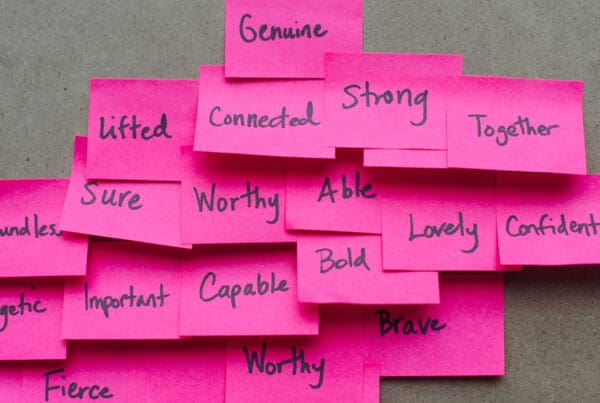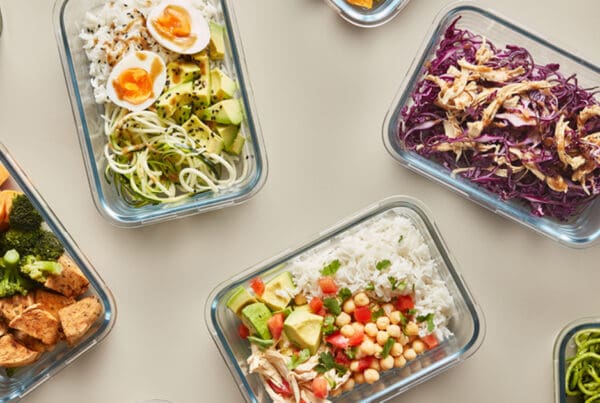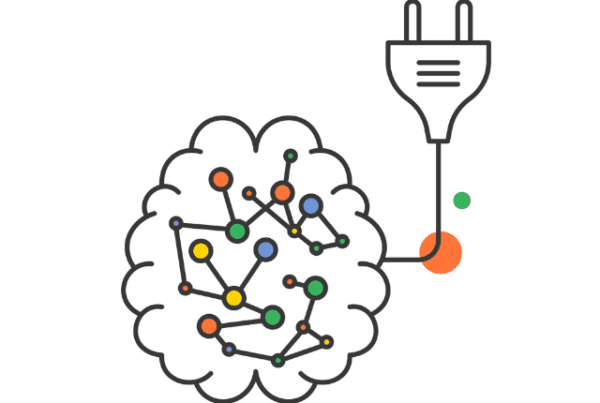Highlights | It’s normal to feel emotional fatigue right now
- We’re in a disillusionment phase of the pandemic.
- Actively building resilience helps emotional fatigue fallout.
- Resilience is our ability to bounce back from adversity.
- Shifting our mindset to focus on gratitude and showing up for friends and colleagues helps build resilience.
It’s been one year since Washington state had its first confirmed COVID-19 case. And Anne Browning, PhD, assistant dean for Well-Being at the UW School of Medicine, is glad she didn’t see it coming.
“Looking back on January 2020, I’m glad I was relatively naïve on what we were in for,” she says.
Here’s what we are facing, in terms of our behavioral health, as we move forward through 2021. The Washington State Department of Health’s Report forecasts behavioral health impacts of COVID-19. The report indicates that early 2021 is an extension of what they call the “disillusionment phase” of disaster recovery. This phase is marked by emotional fatigue and the realization that recovery is likely to take time.
The report predicts increased symptoms of depression and anxiety, trouble with cognitive functioning, exhaustion and burnout during this phase.
Impacts on home life
This winter has been challenging, from rising COVID-19 cases and shorter days to what Browning refers to as “disruptions of togetherness” — especially around the holidays.
“Some folks have been living on their own and are incredibly isolated and maybe, given their own health status, haven’t been able to interact face to face,” she says. “And some families are stuck in a small space with a partner, kids or pets.”
Browning says that these situations take a toll on our coping mechanisms. It’s easier to get set off by small things because COVID-19 has compromised our sense of agency and control.
Just getting through the day, says Browning, is something we should celebrate this year.
It’s true for home life and working in the healthcare field.
Impacts on work life
Whether you are working from home and feeling isolated from colleagues and disconnected from the impact of your job or working with COVID-19 positive patients and worrying about getting sick and bringing the virus home to your family, it’s been a challenging year for everyone.
And Browning expects that we will all be unpacking and recovering from these impacts for years.
“The scale and scope of sitting with death and dying and the lack of interpersonal connection when people are suffering has been incredibly hard,” says Browning. “It has an impact of moral distress on our workforce.”
Browning says that although it’s been difficult to cope with the pandemic, with so much uncertainty and low amounts of anticipatory joy (having things to look forward to), there are ways to cultivate more resilience — building the skills we need to cope and bounce back.
Ask for support
“Prior to COVID, I didn’t hear people openly talking about the exhaustion or emotional fatigue as burnout,” says Browning.
But we are addressing the impacts the pandemic is having on our emotional health in formal and informal ways. For example, UW Medicine’s Peer to Peer Program has had over 500 referrals for peer support in the last year.
And it’s not just in the formal requests for support; Browning says she hears colleagues talking about it during informal conversations, too. When colleagues debrief, vent and show up for one another emotionally, that’s peer support.
Showing up for one another is a form of resilience.
Support resources
- Peer to Peer Program provides colleague support after a stressful event or when the job feels overwhelming.
- Have a supportive conversation with an expert from the Department of Psychiatry and Behavioral Sciences.
- Find more support resources on UW CareLink.
Make peace with what is not in your control
Resilience and coping skills are like a muscle, and we have been exercising that muscle during the pandemic — whether or not it’s something we recognize or acknowledge.
“I think we are going to emerge post-pandemic and collectively point to what we just went through and say, ‘I can handle whatever is going to come next,’” says Browning. “I don’t think there will be many more years that will challenge our resilience and coping the way this year has on so many levels.”
For her, the most powerful lesson she learned during this year is how to make peace with, acknowledge and accept what’s not in her control and shift her attention to the things that are.
Psychologically, there are a finite number of things we can focus on at any one time. That’s why it’s important to be intentional on what we draw our attention toward.
“We can get so focused on the immediate frustrating task in front of us,” says Browning, “To be able to pull back from that and see the things we have to be grateful for, it’s an incredibly powerful perspective shift.”
For Browning, there are two major focuses in her perspective shift: anticipatory joy and gratitude.
Practice joy and gratitude
Rather than focusing on all the activities she is unable to do because of the pandemic, Browning is learning how to ski. It’s a new experience that gives her something to look forward to and focus on.
“I find myself looking up videos to improve my skiing form rather than doomscrolling,” says Browning.
To shift toward gratitude, Browning and her family ask each other, “What’s one thing that happened today that you feel grateful for?” It’s a way to focus their attention on the good, without making mindfulness another thing on the to-do list.
These habits may seem small, but they are daily exercises in resilience.
Participate in the UW Medicine Gratitude Campaign
Browning is helping to create more opportunities to practice gratitude and build resilience in the workplace with the Gratitude Campaign.
Take a moment for appreciation and read the Walls of Gratitude (coming to a clinical setting near you) and add your own note. Or write a letter on a printed postcard (look for these in breakrooms) and give it to a colleague personally.
It’s these small shifts in perspective that help build our collective resilience.
“We know this year has been a heavy lift,” says Browning.” But there has also been a huge amount of colleague and community support, and we want to share that.”
Thanks in large part to the efforts of our UW Medicine Advancement colleagues, UW Medicine received over $600,000 of in-kind donations between March and June 2020 for food and non-perishables (like socks) to be distributed to our healthcare teams.
With more donations rolling in during the past few months, be on the lookout for takeaway goodie bags and meal vouchers at the end of shifts, hopefully through mid-March.
“We want to thank the community for their on-going support and showing up for our healthcare teams,” says Browning. “And we want to reconnect employees with the community appreciation of our healthcare teams in ways that are safe and infection-prevention friendly.”
Browning believes that we will see a thriving rebound in our communities — but it’s going to take some time and a little shift in our perspective.


